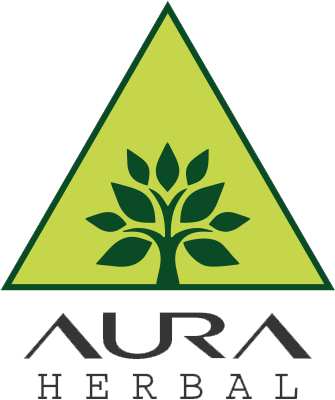The world of shampoo manufacturing companies has evolved considerably since its inception with rudimentary formulas. Modern-day customers have raised their standards significantly. They now expect superior quality products that not only deliver optimal performance but also demonstrate a commitment towards environmental preservation. To fulfill these shifting demands, manufacturers persistently embark on ventures exploring novel technologies. This article aims to explore recent developments in shampoo production and analyze their profound impact on the business sector.
Introduction to Innovations in Shampoo Manufacturing
Shampoo has been around for hundreds of years, but the production process has changed dramatically. Shampoo used to be manufactured using simple materials like soap and water. Consumers nowadays, however, expect more from their hair care products. They want shampoos that are healthy and kind on their hair as well as efficient at washing it.
Manufacturers are continually inventing and researching new technologies to suit these needs. For example, new chemicals that are more efficient at washing hair without removing it from its natural oils are being created. In addition, new packaging materials are being developed to decrease waste and promote sustainability.
Current Trends in Shampoo Manufacturing
An important shift in the production of organic shampoo manufacturer can be observed, as there is an increasing inclination towards utilizing organic and natural components. Notably, consumers are now exhibiting greater awareness regarding the potential hazards associated with synthetic chemicals that are typically present in conventional shampoos. To address this heightened awareness. Manufacturers have redirected their focus toward incorporating organic and natural components into their products. They have started using essential oils like lavender or tea tree oil for their soothing and therapeutic properties. Additionally, Plant extracts such as aloe vera or chamomile are being included for their nourishing and revitalizing effects.
Herbal infusions such as rosemary or peppermint are also being utilized to provide a refreshing and invigorating experience. This shift towards natural ingredients not only meets consumer demands for safer alternatives but also creates opportunities for sustainable and environmentally friendly manufacturing practices.
Another emerging trend is the adoption of sulfate-free formulas. Sulfates are powerful detergents that can strip away the natural oils in hair resulting in dryness and brittleness. Many individuals opt for sulfate-free shampoos as they are gentler on their hair and scalp.
Lastly, there is an inclination towards customizing shampoos to cater to specific hair types. This involves creating shampoos specifically designed for dry, greasy, or curly hair, allowing customers to choose a product that meets their unique needs.
Natural and Cruelty-Free Shampoos: Emphasizing Ethical and Sustainable Practices
In recent times, there has been a significant increase in the popularity of natural and cruelty-free shampoos. This can be attributed to consumers’ growing concern about how their choices impact both the environment and animal well-being. Such shampoos adopt ethical practices and prioritize sustainability across all stages of production. Their formulations solely rely on natural ingredients obtained from botanicals, herbs, and essential oils while completely avoiding harsh chemicals or synthetic additives.
Moreover, they are not tested on animals, ensuring that no harm is caused in the development and testing stages. By opting for natural and cruelty-free shampoos, consumers can enjoy the benefits of gentle and nourishing hair care while supporting brands that prioritize environmental responsibility and compassionate practices. These shampoos serve as a testament to the growing demand for products that align with ethical values, promoting a more sustainable and compassionate future for the beauty industry.
Advanced Manufacturing Processes: Enhancing Efficiency and Quality
In the world of shampoo manufacturing, advancements in manufacturing processes have played a pivotal role in enhancing efficiency and ensuring high-quality products. Traditional batch processing methods have given way to more sophisticated techniques that leverage automation and technology.
One such innovation is continuous manufacturing, where the entire production process is streamlined and uninterrupted, resulting in faster production cycles and reduced costs. Continuous mixing systems ensure precise ingredient ratios, leading to consistent product quality. Moreover, automated filling and packaging systems optimize efficiency and minimize human error.
Overall, advanced manufacturing processes in shampoo production not only improve efficiency and reduce costs but also contribute to maintaining product integrity, resulting in superior-quality shampoos that meet the evolving needs of consumers.
The Rise of Natural and Organic Shampoos: Meeting Consumer Demands
With a heightened awareness of personal well-being and environmental concerns, consumers are actively seeking out natural and organic options across various product categories – including shampoos. What sets these types of shampoos apart is the use of plant-based ingredients instead of the frequently encountered harsh chemicals and synthetic additives that are prevalent in conventional shampoo formulas.
These products cater to consumers seeking a more sustainable and healthier haircare routine. Natural ingredients such as aloe vera, coconut oil, and essential oils offer nourishment and hydration while avoiding potentially harmful substances like sulfates and parabens.
Customization and Personalization: Tailoring Shampoos to Individual Needs
In today’s consumer-centric market, shampoo manufacturers are increasingly focusing on customization and personalization to cater to individual needs and preferences. This trend has been fuelled by advancements in technology and the desire for more tailored haircare solutions.
Manufacturers now offer personalized shampoos that consider factors such as hair type, texture, and specific concerns like dandruff or colour-treated hair. This level of customization allows consumers to address their unique haircare requirements, ensuring optimal results.
Several companies have adopted online quizzes or consultations to gather information about customers’ hair characteristics and concerns. Based on these inputs, algorithms generate customized shampoo formulations, often including specific active ingredients and fragrances.
Overall, the trend of customization and personalization in shampoo manufacturing empowers consumers by offering them personalized solutions, leading to improved hair health and overall satisfaction.
Conclusion: The Future of Shampoo Manufacturing
The field of hair shampoo manufacturers is continuously progressing, offering promising prospects ahead. With continual innovations and advancements being made in technology, customers can look forward to a plethora of even more efficient and environmentally friendly products in the coming years. It is worth mentioning that there are shampoos available designed specifically to address your unique requirements – be it organic choices sulfate free variants, or personalized formulas as we strive towards a greener and more sustainable tomorrow. Shampoo makers will persistently lead the way in creating novel and potent hair care offerings.







